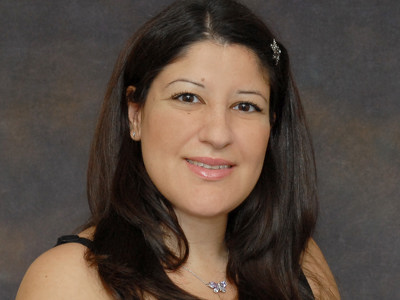Breast Cancer Awareness Month: insights from a medical negligence lawyer
For breast cancer awareness month, Leigh Day specialist breast cancer lawyer Maria Panteli explains the importance of early diagnosis, and what to do should you or a loved one receive a delayed diagnosis or misdiagnosis from a medical professional.
Posted on 30 October 2023
Breast cancer is the most common type of cancer in the UK. Approximately 15% of newly diagnosed cancers in the UK are breast cancer, and one in seven women will receive a breast cancer diagnosis in their lifetime. Each year in the UK alone there are more than 55,000 new cases, which equates to approximately 150 people a day.
What is breast cancer?
Breast cancer occurs when abnormal breast cells grow out of control and form tumours. There are different kinds of breast cancer, which develop in different areas of the breast. Types of breast cancer commonly include:
- Non-invasive ductal carcinoma: The cancer cells are found in the breast ducts (narrow tubes that carry milk to the nipple) and have not spread to the breast tissue surrounding the ducts.
- Invasive ductal carcinoma: The cancer cells begin in the breast ducts and then spread through the lining of the ducts into the surrounding breast tissue. Invasive cancer cells can spread to other parts of the body.
There are also less common types of breast cancer such as lobular carcinoma, inflammatory breast cancer and Paget’s disease of the breast.
What is secondary breast cancer?
This year, the charity Breast Cancer Now is raising awareness about secondary breast cancer. Secondary breast cancer occurs when breast cancer cells spread from the breast to other parts of the body, usually through the blood or lymph nodes. Secondary breast cancer most commonly spreads to the liver, lungs, brain or bones. It is referred to as advanced or metastatic breast cancer. Unfortunately, while secondary breast cancer can be treated to control and slow the spread, it cannot be cured altogether.
Checking your breasts
Whatever your age and gender, it is important to conduct regular self-examinations. You should contact your GP if you notice any usual breast changes. Breast Cancer Now sets out the following changes to look out for:
- a lump or swelling in the breast, upper chest or armpit – you might feel the lump but not see it
- a change to the skin, such as puckering or dimpling
- a change in the colour of the breast – the breast may look red or inflamed
- a change to the nipple, for example, it has become pulled in (inverted)
- rash or crusting around the nipple
- any unusual liquid (discharge) from either nipple
- changes in size or shape of the breast
Your GP may need to conduct a physical examination and refer you to a specialist breast clinic for further tests, depending on the symptoms you present with.
The importance of early diagnosis and treatment
When diagnosed early, breast cancer is more likely to be treated successfully. If detected early, almost all individuals with breast cancer survive their disease for five years or more.
However, it is estimated that in approximately 5% of women, breast cancer has already spread by the time it is diagnosed. It is estimated that approximately 61,000 people are living with incurable secondary breast cancer in the UK.
Late or misdiagnosis of breast cancer
While early diagnosis is associated with the better overall survival rates, in some instances, breast cancer may be diagnosed late or misdiagnosed. Late or missed diagnosis is associated with:
- More invasive treatment, including chemotherapy, radiotherapy, surgery and hormone treatment
- Increased risk of developing complications such as lymphoedema
- Reduced life expectancy
- Reduced chance of cure
- Increased chance of the cancer spreading to other parts of the body
- Increased risk of recurrence
Any diagnosis of breast cancer is devastating for a patient and their families. When a diagnosis is delayed or missed, this can increase the trauma and result in a significant impact to mental health.
If you believe that you or a loved one has experienced a late or misdiagnosis of breast cancer, or received substandard treatment, you may wish to enquire about a claim for compensation.
I have supported many patients affected by these issues, including:
- Winning at trial and securing significant compensation for a child whose mother died following the delayed diagnosis and treatment of her breast cancer.
- Securing a £300,000 settlement for the widower whose wife died following the delayed diagnosis of her breast cancer.
If you or a loved one has experienced a late or misdiagnosis of breast cancer or received substandard treatment and would like to speak with a lawyer about it, please contact me on 020 7650 1200.

Maria Panteli
Specialist medical negligence claims lawyer with particular interest in missed cancer claims.



